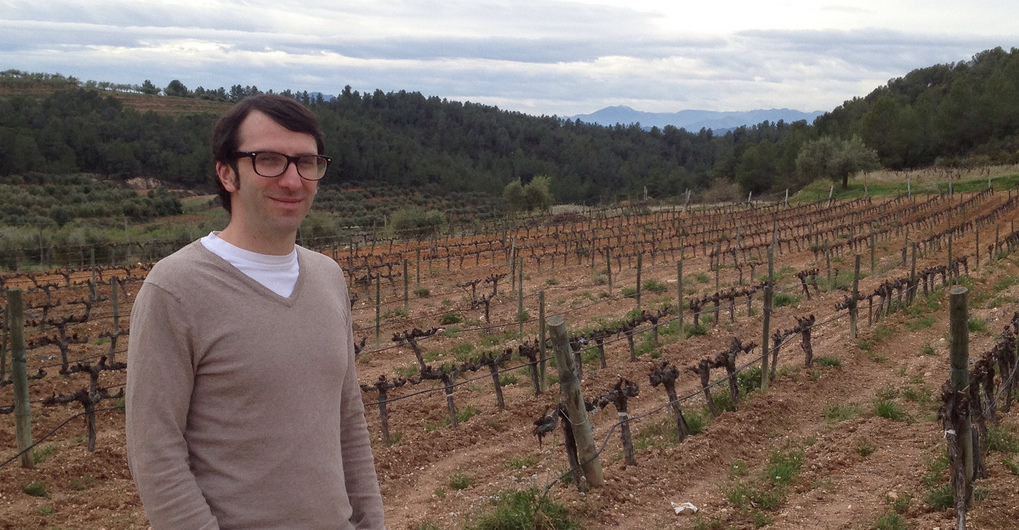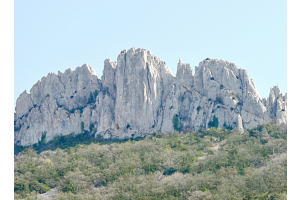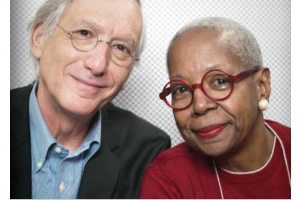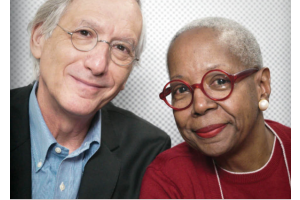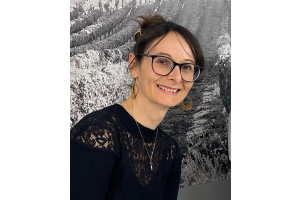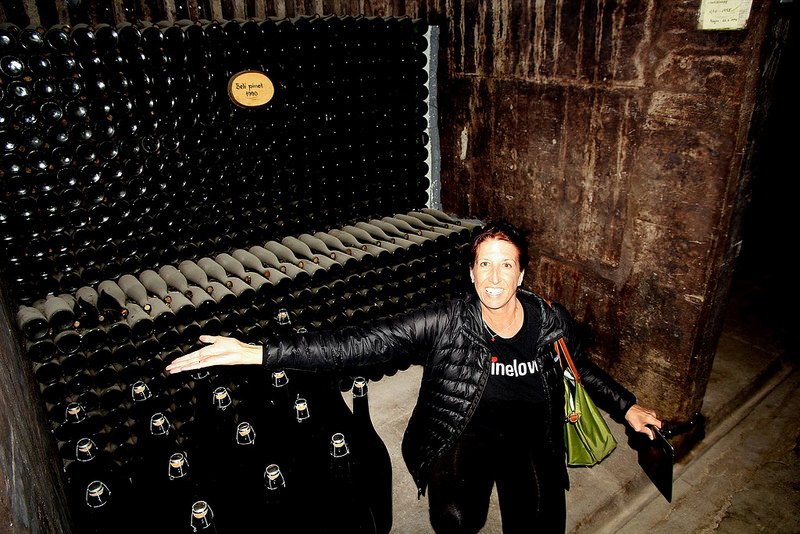
Put on some tunes, grab a book, and open up some wine. (And don't forget to Instagram that bottle.) For this SpeakEasy, our continuing series of blogger interviews, we have a virtual glass or two with Nanette Eaton of Wine Harlots.
What makes you a Wine “Harlot”? It’s a pretty provocative statement, do you get a lot of raised eyebrows over it?
Surprisingly, not often. Wine drinkers are a pretty tolerant bunch. Once at a wine tasting, a Talmudic scholar related in great detail how a harlot shielded Jewish spies in the siege of Jericho, and the world owed me a great debt. I didn't have the heart to tell him I was probably wasn't related. On a press trip in Spain, at lunch, the winemaker turned to me with his compelling blue eyes and said, “So, what is a Wine Harlot?” It was a total deer-in-the-headlights moment for me. I did choke on my wine (but I'm relatively sure it didn't come out my nose) and I was completely speechless – thankfully, I was rescued by the PR handler, who smoothly said, “Lover. It means lover of wine.” Yeah, that's it. Lover of wine. Clearly, I'm not cool enough for my brand.
Bottom line, I think the phrase “Wine Harlots” is hilarious, and I'll endure a lot of humiliation to advance a comedy bit. On a more heady note, “harlot” is a direct homage to the work of satirist William Hogarth who is most known for his Beer Street and Gin Alley engravings, which endorsed the health benefits of beer and warned of the dangers of gin. Hogarth also did two series, the Rake's Progress and the Harlot's Progress which graphically depicted the ravages of the respective lifestyles. The Wine Harlots tagline is “the virtue of vice” a wink to America's uneasy alliance with intoxicants and a nod to our history of Protestant work ethics and provincial Prohibitionism.
You preface many of your posts with a short prose or poetry excerpt. How do you select each one? Are they inspired by the wine or the mood it creates?
Sometimes the quotations find me, other times I hunt them down mercilessly. I read a lot, so I'm always jotting down clever or profound thoughts that express the universality of the human experience. The wine always comes first. Always. I use a lot of wordplay in my work, so if I'm feeling a wine is “luminous” I'll source a phrase that will mirror that sensation.
Additionally, you also have a music match. What makes for a good song to accompany a wine? Any all-time favorite pairings you return to often, whether song or album?
I may not get much pushback from the name Wine Harlots, but I get a shit-ton of grief from suggesting music to play with wine. And the critics aren't mocking my limited range of musical selections, but rather the whole concept of wine and music. My response is to tell them to lighten up. Wine shouldn't be some pedantic discipline, it should be fun. I think defining wine with descriptors “cherry, berry, lemony and bright” and assigning a number to it is limiting, and doesn't really speak to the modern wine drinker. Finding innovative ways to engage and inspire my audience is what I'm striving to do.
Music, like wine preferences is so subjective, so anything that pleases works in my world. There will be no judgement over what you are drinking, what you are drinking in, or the book or music you are enjoying with it. Here's a couple of artists that I find eternally compelling.
Nina Simone works with everything, but often I pair Simone with Champagne as a sparkling counterpoint to the hypnotic depth of her storytelling. The melancholy of Nick Drake (and those carry the mantle like Duncan Sheik and Joshua Radin) pairs perfectly with a soulful pinot noir. The perfect summer pairing is Emiliana Torrini's Love in the Time of Science with a crisp rosé.
[DISCOVER EATON'S TEN FAVORITE PLACES TO WINE AND DINE IN SAN DIEGO.]
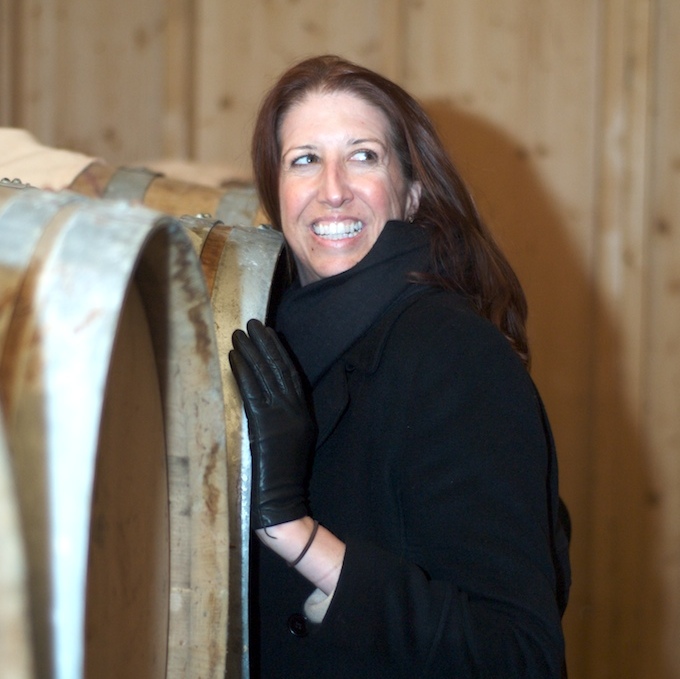 You’ve got quite a following on Instagram. What makes this platform so attractive and successful for you? What advantages does it have over, say, Facebook and Twitter?
You’ve got quite a following on Instagram. What makes this platform so attractive and successful for you? What advantages does it have over, say, Facebook and Twitter?
Storytelling isn't just about words. And wine isn't words – it a feeling, a mood. Instagram isolates that by limiting it to images. Instagram is pure, it hasn't been corrupted yet like other platforms, partly because they don't allow hyperlinks in posts, so it doesn't have the same allure to the lame marketers because they can't get click-throughs. (But seriously, who's clicking on links anymore, anyway?)
Instagram is still fun. Facebook isn't fun, and it hasn't been for years. The issue of Facebook not allowing my audience to see my posts unless I pay them is problematic for a small brand like mine. Someone glibly said, “you only need to budget $5 a day for Facebook ads” but for me, that equates to $1800 a year, which is a plane ticket to Europe or a new computer. Guess which one I chose?
Twitter has been fantastic for me, and it's still great for virtual wine tastings and events. But it's become a challenge to use because of bad practices of the users. On Wednesdays and Fridays, my stream is clogged with lists full of users with a #WW or #FF. And then everyone on the list retweets it. This masturbatory practice may make them feel good, but it's providing no value to the community. Steak, not spam, my friends.
[Photo by Fred Minnick.]
You and I were part of a media trip to France with stops in Beaujolais, the Northern Rhone, and the Southern Rhone. Tell me something that surprised you about each region, or something you’d want people to know who aren’t familiar with the places or the wines.
Buy these wines. If you are looking for bang-for-your-buck, Beaujolais (and to a lesser extent Rhône wine) aren't fashionable right now, so they are incredible values. Beaujolais is delicious upon release, but if you can put a few bottles away in a few years the gamay transforms to an elegant wine with pinot noir qualities.
That was an amazing trip. I loved our visit to Marcel Lapierre and the dinner made by the legends of Beaujolais will linger forever in my memory. The visit to M. Chapoutier was fantastic and I'm still transfixed by the galet rocks that the Chateauneuf du Pape grow in – it's got to be a metaphor for the struggle of life.
You also feature cocktails on your blog. What do you see as the relationship between mixed drinks and wine? What could the wine world learn from the cocktail scene?
I'm an equal opportunity offender when it comes to intoxicants. I don't discriminate! I'm a neophyte in the spirit world, but it seems like the cocktail crowd is having a lot more fun than the sedate wine world.
